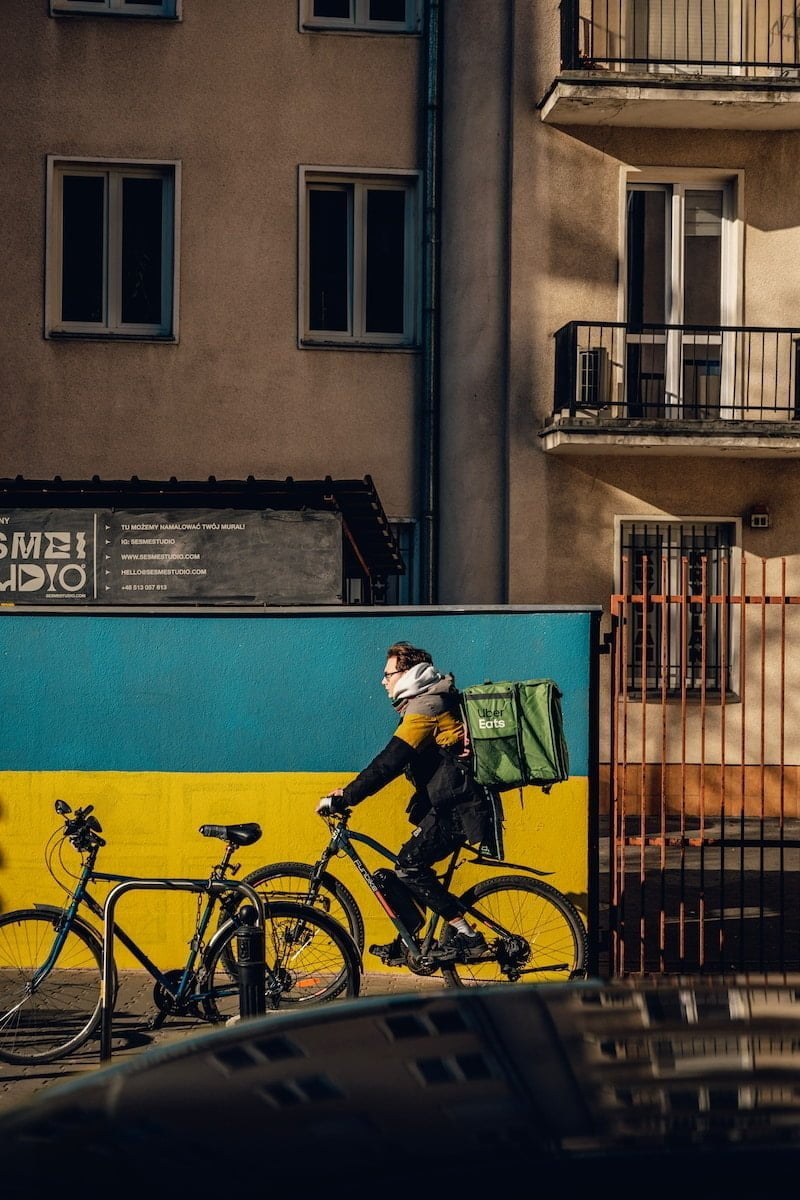Uber expands commitment to sustainability with zero-emission deliveries and sustainable packaging
Uber, the global ride-hailing and delivery platform, is taking significant steps to contribute to a cleaner and more sustainable future.
Building on its previous commitments to become a fully emission-free mobility platform by 2040, the company is now extending these goals to their delivery business, Uber Eats. The aim is to eliminate emissions on all Uber Eats deliveries worldwide by 2040 and end unnecessary plastic waste from deliveries by 2030.
With over 890,000 merchants in more than 30 countries, along with millions of couriers and drivers, Uber has a unique opportunity to make a substantial impact on creating a greener future. Just as they have been leading the ride-hailing industry towards zero emissions, Uber aims to become the first global delivery tech platform to support the transition to more sustainable packaging, not only for Uber Eats merchants but for the entire restaurant delivery ecosystem.
Supportive policies make the difference
To achieve its ambitious goals, Uber acknowledges the importance of supportive policies. In European cities, where progressive policies such as the EU's Green Deal and France's Climate Bill are in place, Uber is setting earlier emission targets. By 2030, they aim to make all deliveries by couriers using the Uber Eats platform emission-free. Furthermore, Uber plans to invest in partnerships and incentives to help couriers transition to electric bikes (e-bikes), electric vehicles (EVs), and other emission-free modes of transportation — also extending vehicle partnerships in North America and investing in batching and green routing to reduce emissions. In addition, they will collaborate with organisations like Rocky Mountain Institute (RMI) to adapt their current electrification efforts for mobility to cover deliveries as well.
The issue of single-use plastic waste is another significant concern for Uber. They recognize that plastic pollution entering the oceans is expected to triple by 2040, and consumer take-out items, including plastic bags, wrappers, food containers, cutlery, and bottles, make up a large portion of this pollution. In response, Uber plans to help restaurants transition to more sustainable packaging by 2030 in every city where they operate. They will achieve this through a combination of discounts, incentives, and advocacy — in particular, Uber is collaborating with Visa on the Grants for Growth program, which as of now allows restaurants in London, Madrid, Paris, New York, and Los Angeles to apply for financial support to implement greener packaging solutions.
In select cities, users can now also choose merchants that use green packaging. Uber Eats has also partnered with companies like Green Paper Products, Bunzl, Enviropack, Dinovia, and ITOCHU Corporation to support restaurants in transitioning away from single-use plastics — these partnerships offer discounts of up to 35% on greener packaging solutions for Uber Eats merchant partners.
Moreover, Uber aims to hit earlier milestones in Asia-Pacific and European cities by partnering with local stakeholders and supporting policies that promote responsible food packaging for delivery.
A carbon-neutral future with everyone's support
Uber understands that achieving a carbon-neutral platform is a challenge that requires collective effort. They emphasize the need for affordable and accessible electric vehicles, e-mobility solutions, and sustainable packaging options. Transparency and accountability are also key, as Uber plans to incorporate their progress in Uber Eats into their annual Environmental, Social, and Governance (ESG) reporting.
The commitments made by Uber are receiving praise and support from various organisations and industry leaders. The World Wildlife Fund (WWF), Closed Loop Partners, Visa, and many others have expressed their appreciation and willingness to collaborate with Uber to help achieve these sustainability goals. They highlight the significance of Uber's actions in driving change across the food delivery sector, reducing packaging waste, and advancing a circular economy.
Karen Vancluysen, Secretary General at POLIS says:
“I welcome Uber’s efforts to reduce the environmental footprint of its meal delivery platform, and in particular the ambition to move towards zero emissions when it comes to the role of Uber Eats in the urban mobility ecosystem. Only through public-private cooperation, joint efforts and a common sense of ownership and responsibility, will be able to move towards the climate neutrality and sustainable mobility targets we have set ourselves and absolutely need to reach.”
Uber's dedication to sustainability and its willingness to collaborate with stakeholders demonstrate its commitment to making a positive environmental impact. By prioritizing zero-emission deliveries and sustainable packaging, Uber is taking significant steps towards a cleaner and more sustainable future. As other companies and industry players join in these efforts, the collective impact will be even greater. The world is watching and eagerly awaiting the positive change that will result from these commitments.
